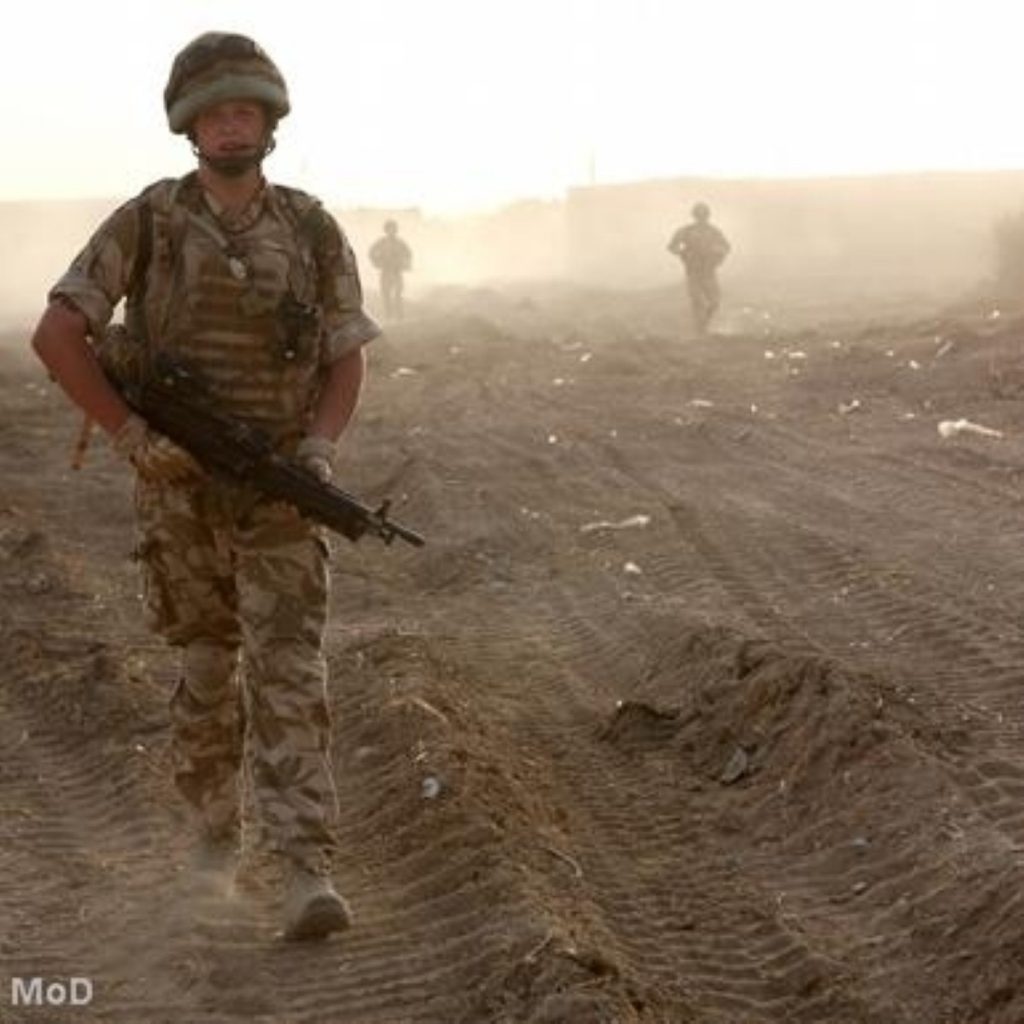British Afghan strategy under attack
By Ian Dunt and Alex Stevenson
Gordon Brown has admitted Britain’s forces in Afghanistan face a time of “great challenge”, as the country mourned the deaths of eight British soldiers in just 24 hours.
But the prime minister told the Commons he was determined not to yield Helmand province to the Taliban because of the recent British fatalities in Afghanistan, which now number 184 since 2001.
Troops held a private memorial for the men at Camp Bastion today, and Gordon Brown paid tribute to them in the Commons, saying: “It’s at times like loss and sadness like these that we become more aware of the sacrifices the armed forces make for our country.”
The prime minister is being accused of dereliction of duty over troop’s lack of equipment by the Conservatives, but he launched a strong defence of provision today, stressing that many commanders on the ground were satisfied with the resources available to them.
“It has been a very difficult summer and it is not over yet,” he said.
“But. if we are to defeat this insurgency, then we must persist in our operations in Afghanistan.”
David Cameron said the prime minister was struggling to make the nature of the mission clear enough to the British people. He said it needed to be “tightly defined, hard-headed and realistic”.
The Conservative leader said the number of troops in Afghanistan had doubled since 2006 and so Mr Brown’s claim that helicopter numbers had risen by 60 per cent in the last two years did not mean proportionately they had gone up at all.
Mr Brown quoted the British Army’s spokesman as having told him: “It’s a sad fact that helicopters would not have saved the lives lost this week.”
He confirmed the number of troops in Afghanistan would rise from 8,300 to 9,000.
Meanwhile, activists from Stop the War, which organised the massive anti-Iraq war demonstrations in 2003, marched around Westminster in a call for Britain to end its military engagement in the country.
Earlier pressure was piled on defence secretary Bob Ainsworth as he faced tough questions on military equipment from MPs, in his first appearance answering questions for the Ministry of Defence.
During the session he confirmed the government was spending £3.5 billion a year on the Afghan conflict, but batted away suggestions that all the recent deaths could be attributed to a shortage of equipment. He did mention, however, that he was trying to get more helicopters to the war zone.
“We have now lost 184 lives in this conflict and each and every one of them is a terrible loss,” he said.
“This last week has been a hard week for those serving in theatre but their resolve is incredible.
“In the face of these tough times they are determined to get on with their mission and in the teeth of heavy resistance they are making progress.”
Shadow defence secretary Liam Fox said: “Our brave armed forces lack the equipment which give them adequate mobility and protection in an ever more dangerous environment.
“We hear again and again from commanders in the field that they need helicopters so that they have the agility and flexibility they need, but clearly Tony Blair’s promise that the armed forces could have whatever they needed has not been kept.”
The Scottish National party (SNP) Westminster leader and defence spokesperson Angus Robertson called for a review of government strategy in the region.
“It is essential that we have a serious review of our strategy and operations not just to refocus our efforts, but also to actually convince people that the best strategy is being pursued,” he said.
“The awful toll of military personnel killed in Afghanistan has understandably led to questions about just what our forces are fighting for. When we first went to Afghanistan the defence secretary blithely suggested they could complete their mission ‘without firing a shot’ – people want to know what has happened.”
Foreign secretary David Miliband told GMTV today that the conflict in Afghanistan will make Britons safer, in a clear indication the government is concerned casualties will dilute the public’s commitment to the war.
Today, Mr Miliband told GMTV the government’s strategy in Afghanistan was clear.
“This is a mission that’s been developed with a very clear strategy: above all, to make us safer here because we know these areas of Afghanistan and its neighbour Pakistan are used to launch terrorism around the world,” Mr Miliband said.
“So the mission for us is clear.”
The war in Afghanistan has taken centre stage after 15 British troops were killed this month alone – including the eight men killed on Friday. They included three riflemen from 2nd Battalion The Rifles who were just 18 years old.
A new poll indicated public support for the conflict is on the rise, but those at today’s protest in Westminster will demand British troops are brought home.
The ICM survey for the BBC and the Guardian put backing for British troops at 46 per cent, while 47 per cent opposed the conflict.
More troops have now died in Afghanistan than Iraq.





-01.png)